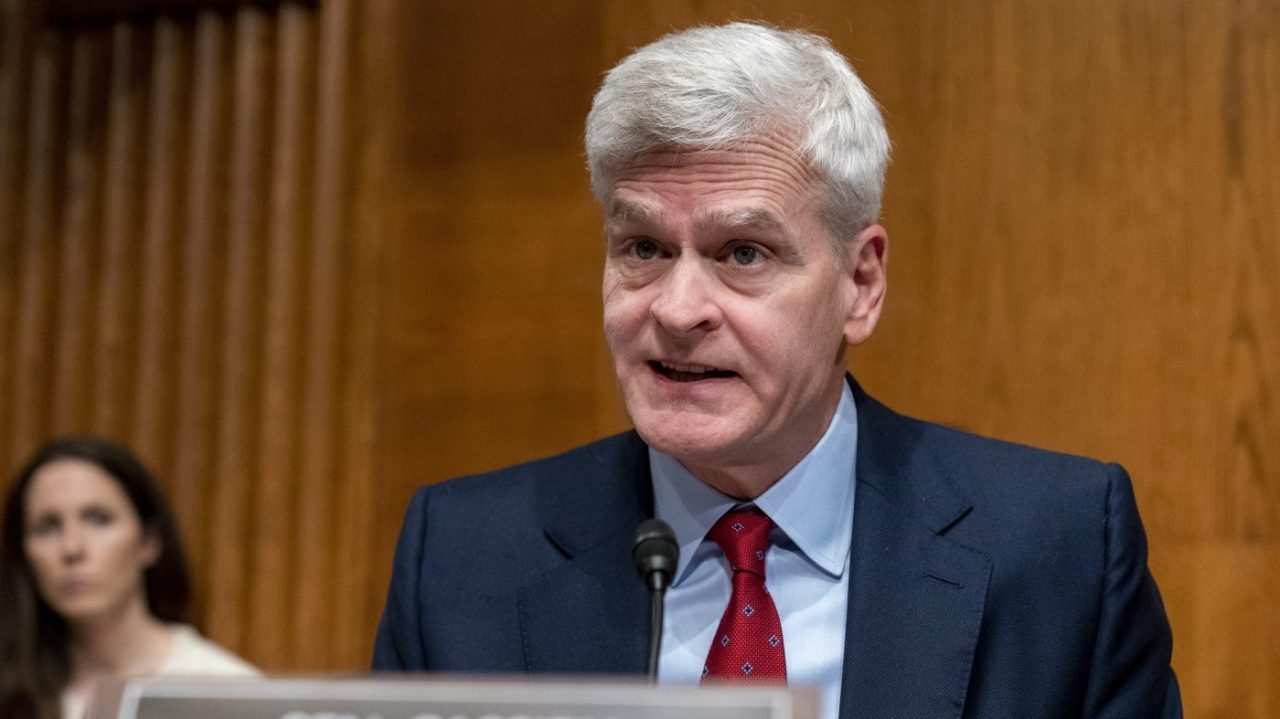- cross-posted to:
- academia
- cross-posted to:
- academia
The GOP package, called the “Lowering Education Costs and Debt Act,” consists of five bills that the senators say will address the root causes of the student debt issue such as the increasing price of college and students taking out loans they can’t afford.
So their plan is to ensure students know the costs upfront (This is already done) and then to limit certain students from borrowing. What a wonderful idea to bring home to your constituents while not addressing the issue of rising costs.
College for the rich and not everyone else. This is the goal.
“Unlike President Biden’s student loan schemes, this plan addresses the root causes of the student debt crisis. It puts downward pressure on tuition and empowers students to make the educational decisions that put them on track to academically and financially succeed,” he added.
Lowering people’s ability to borrow doesn’t really address the other problems which underlie high tuition costs - such as newer facilities costs, more administrative staff (both of which, IMO, heavily relate to the competition between schools to provide the most services to their students and court new student admissions), and decreases in federal and state funding coming from tax revenue which has led to much of the financial burden being passed onto individual students.
Plus, as @misguidedfunk mentioned, we already tell students their upfront cost of attendance - multiple times even before they decide to enroll or start classes - and they have to acknowledge it as part of receiving aid.
heavily relate to the competition between schools to provide the most services to their students and court new student admissions
Malcolm Gladwell podcast discussing this very thing: https://www.pushkin.fm/podcasts/revisionist-history/food-fight
This does nothing to address one of the most expensive aspects of attending college - room and board. With rent and real estate prices climbing dramatically, this is a huge (>50%) part of the expense of college for those who cannot live at home. Students get loans to help cover that and over four years it adds up to many tens of thousands of dollars.
great point. don’t forget the books tho! that industry needs some reigns put on it and to prevent professors from preventing the use of used books!
For sure! I’m about to teach a class and am using a really great free textbook from OpenStax. It was really important to me not to increase the financial burden on my students.
This is very true in my experience. My college expenses were slashed in half when I moved out of the dorm and into a tiny studio apartment across the city from my campus. It also really hurt my ability to study when I was so far from campus. It hurt my studies even moreso when I needed to take on a part time job to try mitigating the costs of my rent. It’s a really toxic system, because the parts of cities with universties tend to be the expensive parts of cities.
Sounds good on the face of it but really doesn’t address the mountain of debt most people are in currently. Agreed that schools and deceptive lending practices need to be reigned in, but let’s be real here, this doesn’t really address the root cause of the problem which is runaway costs. As long as people are willing to take the loans out the schools will continue to charge what they want. From what I read it’s just kicking the can down the road and putting the onus on a young student coming out of high school to make the right decision.
It’s so they can go home and bang the doldrums about the Senate not allowing their bill to progress. They get to campaign on, well I tried!
These don’t sound terrible, but aren’t the root causes of the student debt problem still being unaddressed?
- student loans are legally allowed to be usurious (payment plans where your payment isn’t enough to cover interest, and the balance grows)
- you can’t legally default on student loans; they follow you out of bankruptcy
Because that’s a potent cocktail for disaster.
This doesn’t feel like it’s really going to do much. More information for those looking at loans is good, I’ll admit, but this doesn’t seem to do anything to help those already drowning in student debt.
(And the GOP never misses an opportunity to take a shot at Biden do they? I think they just want that sweet interest money.)
It kind of half addresses just how out of control costs of education itself has gotten. Not only tuition but cost of rent or dorms. (Though I guess that could be seen as a separate issue?)
Costs are still rising everywhere and doesn’t seem to be stopping anytime soon.
The root cause of these higher college prices are in fact that student loans are guaranteed. That’s when it started and that’s when it will end.
This is why it’s a bubble. It can be guaranteed all the bankers want, if people cannot afford it…they will choose food and a warm bed long before they make that payment.
That’s why the government makes sure they can garnish you wages and even social security.
Was expecting this to be standard GOP garbage, but after reading… I’m actually kind of mixed on it?
- The first three bills don’t seem bad, but I don’t think they’ll have any significant impact.
- The fifth bill sounds like it may have an impact, but I’m curious if experts think uncapped graduate loans are really drivers of the problem.
- The fourth bill sounds the worst to me, feels like GOP trying to cut enrollment in liberal arts, disregarding that those programs are important even if the pay is not as good.
I’m not opposed to Biden’s loan forgiveness, but I’ve always felt like it’s like putting a bandaid on a chainsaw wound and won’t fix the underlying problem of college being too expensive. I like to see proposals addressing that instead, and this sort of does. Wonder if there’s any chance of any of these passing, though.
This pretty much lines up with my take as well. Educating borrowers via the first three bills on true costs, expected earnings, and repayment options is fine, but is mostly done already. I don’t see how mandating a form that needs to be signed saying that you understand the debt you are taking on is going to change that.
The fourth bill is pretty blatantly ideologically motivated. If they truly think that these programs are worth less, then a better solution might be something like tying the cost of tuition for different majors to the expected earnings potential rather than eliminating aid eligibility.
The fifth bill would have a dramatic impact on graduate students. I am lucky enough that I did my PhD back when a graduate student stipend could (just barely) cover living expenses. However, graduate student pay has not kept up with cost of living, and grad students often take out the PLUS loans to help bridge the gap. Eliminating these would essentially price out a lot of grad students in HCOL areas that don’t have family wealth to draw from. Alternatively (and preferentially), it could motivate schools to actually pay a living wage to grad students. However, the most likely outcome is that schools would just bring in more wealthy international students to fill the enrollment gap.
The fourth bill does seem like it has the potential to have a devastating effect on mass accessibility to formal college-level education in liberal arts. Such programs would seemingly find themselves merely enrolling either the very wealthy or the very talented, who were either wealthy enough to afford the cost of American university straight-up or talented enough to receive scholarships.
Anecdotally, most of the adults that I know who are struggling with student loans as adults have undergraduates in liberal arts. I guess you could make an argument that not funding students taking such programs is a more fiscally responsible move.
The fourth bill gave me ‘no child left behind’ vibes. I feel like it would go exactly the same way to cut funding to smaller schools and/or prevent the development of new academic institutions.
I like the idea in practice. We really need to hold institutions accountable for outcomes. But, I think there’s probably a better way to do this with less collateral damage on liberal arts.
Flip side, maybe we need to rethink these programs if it really isn’t leading to student success.
root causes
Oh, great! So it’s going to restore all that state funding that universities used to get? The funding that student loans were used to make up after it was cut?
No?
Oh well.
I don’t think this will do much of anything, except for the graduate loans section. You can educate people on the cost of school all you want, if someone needs to finish school they’ll take on whatever debt they need to.
Best solution is to just make it free. I feel like the investment will just pay for itself when you have more people with degrees able to fill more jobs, bolstering the workforce.













